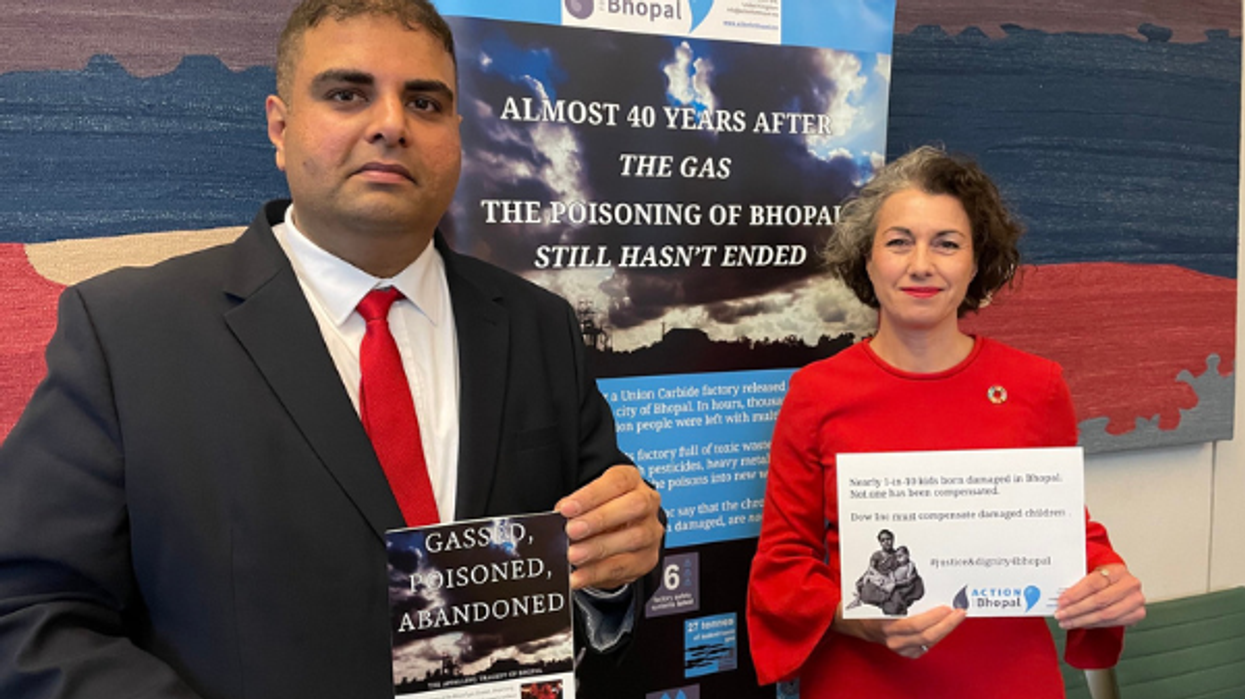Stockport member of parliament (MP) Navendu Mishra on Tuesday (15) secured a Westminster Hall debate in the UK parliament to raise awareness about the gas tragedy that took place in Bhopal in the central Indian state of Madhya Pradesh in 1984, killing more than 3,000 and several thousands injured.
The 33-year-old Labour MP hosted a drop-in following the debate along with groups such as Action for Bhopal which works in spreading awareness of the aftermath of leak of poison into the air, soil, and water around the former Union Carbide Corporation (UCC) pesticide plant in the Indian city and press all stakeholders to clean up the environment.
The industrial disaster, considered one of the world's worst, took place in the intervening night of December 2 and 3, 1984. More than 500,000 people were exposed to the toxic methyl isocyanate gas following a leak at the UCC plant.
"Locals fled their homes, choked, blinded. By the following day the streets were lined with corpses," says the website of Action for Bhopal.
According to the Madhya Pradesh government’s estimates, 3,787 people lost their lives in the tragedy in and around Bhopal. However, media reports claim the actual death toll to be somewhere between 16,000 and 30,000, and the injury count close to 500,000.
Various groups, from India and around the world, have been campaigning for justice for the victims and survivors of the tragedy which happened almost four decades ago. The call for justice includes, besides compensation, environmental remediation, medical care, and research.
In his speech in Westminster Hall, Mishra called on the UK government to put pressure on Dow Chemicals, the parent company of Union Carbide, to accept the “polluter pays” principle adhered to in both the US and India and take responsibility for remunerations.
"For the victims, their children and their families, whose lives and livelihoods have been affected by the events on the evening of 2nd December 1984, today is important because it should be the start of our country’s contribution to their campaign for justice," he said.
Survivors have been fighting for compensation, medical treatment
The survivors of the tragedy have been fighting for long for adequate compensation and proper medical treatment for ailments caused by the leak.
The Indian government had filed a curative petition in the Supreme Court in December 2010 for enhanced compensation.
On June 7, 2010, a court in Bhopal court had given two years’ imprisonment to seven executives of Union Carbide India Limited.
The then UCC chairman Warren Anderson was the prime accused in the case but did not appear for the trial. In February 1992, the Bhopal chief judicial magistrate's court had declared him an absconder.
The courts in Bhopal had issued non-bailable warrants against Anderson in 1992 and 2009 before he died in September 2014.
[With agency inputs]




